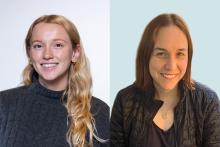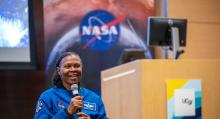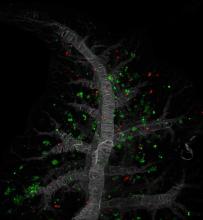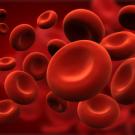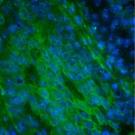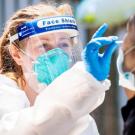News
UCSF, St. Jude Identify Key Culprit Driving Treatment Resistance in Deadly Immune Disorder
A new study by researchers at UCSF Benioff Children’s Hospitals and St. Jude Children’s Research Hospital has identified what they believe to be a key reason behind patients’ treatment-resistance in the rare inflammatory disorder HLH. The finding could offer additional insights into other immune
Tumors Disrupt the Immune System Throughout the Body
Cancer treatment has advanced with the advent of immunotherapies that, in some cancers, can overcome tumors’ ability to evade the immune system by suppressing local immune responses. But a new study in mice by UC San Francisco researchers has found that, depending on a cancer’s tissue of origin
UCSF Brings COVID-19 Testing to San Francisco's Bayview, Sunnydale and Visitacion Valley
UC San Francisco epidemiologists and infectious disease specialists are partnering with several community organizations and the San Francisco Department of Public Health (SFDPH) to offer comprehensive, voluntary COVID-19 testing to residents of the Bayview, Sunnydale and Visitacion Valley, three
Smoking Nearly Doubles the Rate of COVID-19 Progression
Smoking significantly worsens COVID-19, according to a new analysis by UC San Francisco of the association between smoking and progression of the infectious disease. In a meta-analysis of studies that included 11,590 COVID patients, researchers found that among people with the virus, the risk of
Flipping A Genetic Switch on Cells Lets Researchers Boost or Suppress Immune Responses
Cancer and autoimmune diseases, such as rheumatoid arthritis and multiple sclerosis, might not seem to have much in common, but some researchers now are pinning hopes on the same immune system cell – called the regulatory T cell, or Treg – to better fight both, through immunotherapies that
